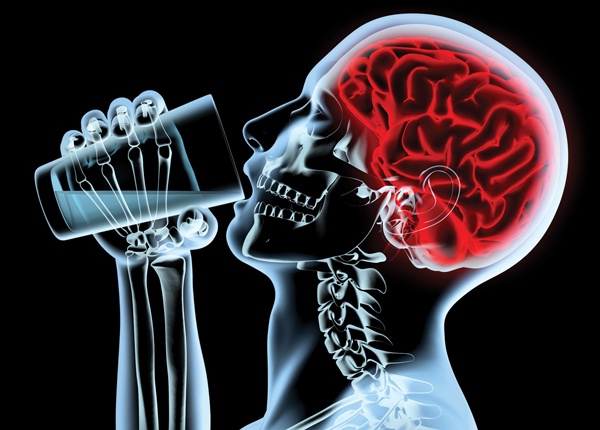
Alcohol Consumption and Physical Impairment of Your Driving Ability
Updated Dec. 25, 2020While alcohol is hi-jacking your brain to wreak havoc on your perception, judgment and motor skills, it is also disrupting other important systems directly. Remember that one way or another, alcohol ends up in your blood. From here, it has access to every tissue and vital organ in your body.
As far as your body is concerned, alcohol is poison. A quickly as biological processes will allow, any alcohol you consume will be shipped off to your liver where it can be made less harmful. Your kidneys will then filter your blood to remove the resulting substances so that they can be passed out of the body in your urine. Unfortunately, your body will sustain some damage as a result of the alcohol in your blood before your liver and kidneys can deal with it. Plus, the act of processing the alcohol will damage the liver and kidneys themselves. With regular or excessive alcohol consumption, this damage is often irreversible.
Alcohol and the circulatory system
Your heart, blood vessels and blood are the main components of the circulatory system. This system’s job is to transport water, oxygen, nutrients and other vital chemicals to different organs around the body. It also serves as a waste transportation system, collecting toxins and unwanted by-products from biological processes, ready to be excreted from the body.
Alcohol will prevent your circulatory system from working as well as it should, causing:
- 1

Heart tissue damage.
When your heart muscle cannot pump blood around the body effectively, all your vital organs are affected. A damaged heart will also manage fat less effectively, increasing your risk of a heart attack. - 2

Lower blood pressure.
With insufficient pressure, the circulation of blood will become sluggish. - 3

Low heart rate.
With fewer beats per minute, your heart will not be able to move blood around your body as efficiently.
Together, these effects lead to undernourished, under-oxygenated tissues everywhere in the body. Plus, harmful waste products that would usually be carried out of your system via blood may build up and hinder organ function. Circulatory system damage will leave you more at risk of disease and chronic illness.
Alcohol and the respiratory system
All the body’s cells use oxygen as fuel and secrete carbon dioxide as a waste product. The respiratory system is responsible for getting oxygen into the bloodstream, where it is then transported to cells and tissues. It also filters carbon dioxide out of the blood, so that it can be expelled from the body as you breathe. Your lungs are the most important organ in your respiratory system, though it also relies on the nose, mouth, trachea (the tube leading to your lungs) and the diaphragm to function.
Alcohol threatens the healthy function of every organ, cell and tissue in your body by slowing down respiration. This means less oxygen getting in and less carbon dioxide getting out. When an organ is heavily starved of oxygen, it cannot work efficiently and will eventually begin to shut down. Where your liver and kidneys are concerned, this can further compound the effects of intoxication. If you are not supplying your liver and kidneys with enough oxygen, they cannot clean alcohol from the blood properly and the adverse effects of alcohol intoxication are worsened.
In cases of alcohol poisoning, the respiratory system becomes so disrupted that people have been known to stop breathing altogether and die in their sleep.
Other harmful effects
Alcohol is often accompanied by various other dangerous or unpleasant short-term physical effects. These include but are not limited to:
- 1

Headaches.
Alcohol can lead to dehydration which causes acute headaches. This may occur while you are intoxicated or the following day, if you are hungover. - 2

Extreme fatigue, aches and pains.
During a hangover, you will be able to feel all the damage the alcohol did to your body, without the effects of actual intoxication to mask it. Bad hangovers can sometimes last for a couple of days. - 3

Impaired liver function.
The strain placed on your liver as it works to process alcohol can lead to impaired liver function. When you cannot clear waste and toxins from your blood efficiently, you will be more susceptible to illness and disease. - 4

Stomach irritations.
Alcohol reacts with your stomach’s protective lining. This can lead to acid reflux, nausea and vomiting. - 5

Skin blemishes.
As alcohol hinders circulation, your skin cells may become deprived of oxygen or backed-up with toxins. In the days following a drinking binge, you may experience acne flare-ups, uneven skin tone and skin irritations.
Risking your health and your life
As you can see, consuming alcohol irresponsibly has the potential to worsen your quality of life and shorten your life considerably. If you drink too much, too often or both, your body will eventually pay the price. Sadly, a later-life chronic illness as a result of excessive alcohol consumption would be a best-case scenario if you choose to drink and drive. Get into the driver’s seat while your body is physically impaired by alcohol and you’ll be lucky to live through the entire journey. Check out our next article to see how the physical effects of alcohol will endanger you behind the wheel.




